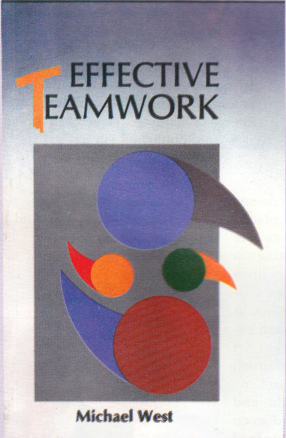The book asserts that team- work is a central strategy in mod ern organizations for ensuring adaptability and effectiveness but spotlights the practical difficulties of working in teams. The author, Michael West knows what he is talking about, as he is the co director of the Corporate Performance Program of the ESRC Center for Economic Performance (LSE) and the Professor of Work and Organizational Psychology at the Institute of Work Psychology, University of Sheffield. He is also a fellow of the British Psychological Society which first published this book in London. He says that teams, like individuals, have to reflect upon their functioning and adapt in ways which are appropriate to their changing circumstances. West says such an orientation requires five things:

1. Intelligent scanning of the environment.
2. Awareness of the functioning of the team.
3. Flexibility or readiness to change.
4. Tolerance of ambiguity and differences within the team.
5. A preparedness to accept uncertainty as change occurs.
Not for him the road of simple prescriptions for teamwork, as teams operate in varied organizational settings and even within organizations, teams differ markedly. He also analyzes why individual efforts are better than team efforts. One reason is ‘social loafing’ because in teams the individual efforts are not identifiable and cannot easily be evaluated, they make less effort. Thus an experiment done in the 1890s by French agricultural engineer Max Ringelmann is true even today. He instructed agricultural students to pull on a rope attached to a dynamometer and measured the amount of pull. Individually they could pull 85 kg, but in groups of 7 they could pull only an average of 450 kg. The group were pulling only 75% as hard as the aggregated work of 7 individuals pulling alone. But what is important is that West points out ways in which team- work can be made more efficient.


